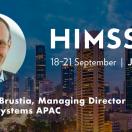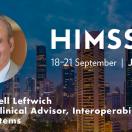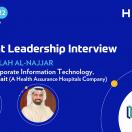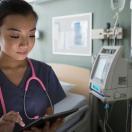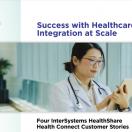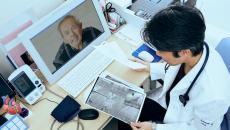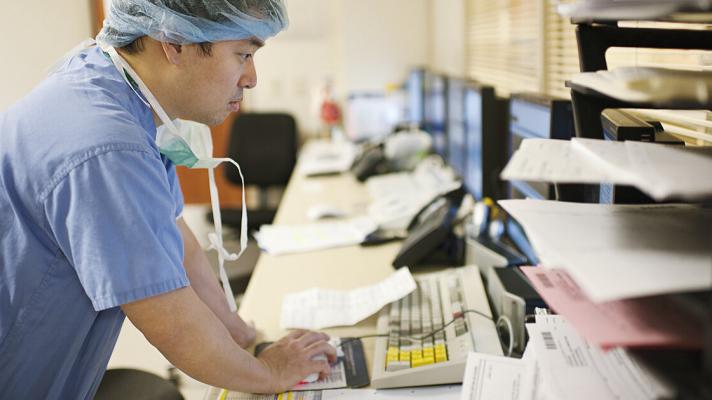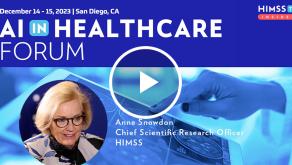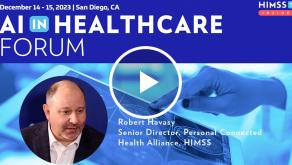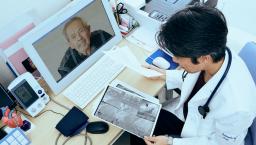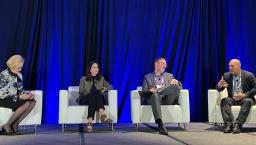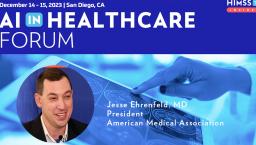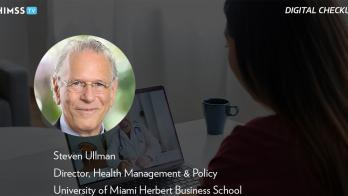FHIR frenzy and digital twins top HIMSS23 APAC takeaways

Photo: Hispanolistic/Getty Images
By Luciano Brustia, Regional Managing Director, Asia Pacific, InterSystems
HIMSS23 APAC certainly delivered on its theme, "Health that Connects + Tech that Cares."
It helped being in Indonesia, where digitisation and connected health is a government priority. But connecting up healthcare, enabled by data and systems interoperability, was high on most delegates’ priority lists.
That’s probably because of the increasing adoption of the HL7® FHIR® health data standard. As Stella Ramette from InterSystems said in her keynote, FHIR is the interoperability standard built for the Internet era.
That time is now. Asian countries are embracing FHIR to connect care over the Internet to improve population health, support health planning, empower patients, and reduce inefficiencies, among other objectives.
FHIR frenzy
In Indonesia, deadlines are looming to implement EMR systems and connect to and share data with the SATUSEHAT national integrated health data exchange platform.
The frenzy of interest in FHIR exceeded even our expectations. The pre-conference FHIR workshop we sponsored was only expected to draw 50 delegates. It ended up attracting over 100 delegates, many of whom are climbing a steep learning curve regarding implementation best practices.
Interest extended beyond using a FHIR server to interoperate with national health data exchange initiatives. Delegates also learned how to build a FHIR repository of clean data to unlock more value from their organisations’ growing data assets.
That’s my number one takeaway from HIMSS23, but there were some other significant developments.
Digital twins
Digital twin technology is maturing in healthcare, and we heard about some ground-breaking use cases.
iMEDWAY, which uses our InterSystems IRIS for Health™ data platform, presented a digital twin solution for the simulation modelling of business processes. Singapore General Hospital shared a digital twin initiative for near real-time monitoring, analysis, prediction, and simulation of disease outbreaks.
Johns Hopkins All Children’s Hospital also demonstrated improved health outcomes by modelling a patient’s recovery or wellness against an ideal twin scenario.
Emerging technologies
In keeping with the theme, HIMSS23 APAC focused less on shiny new technology and more on laying the foundations for healthcare transformation with connected care technology.
For example, we saw renewed attention on EMR systems as a cornerstone technology. Every healthcare provider needs an EMR to transform digitally. But because the availability and quality of patient data is critical to transformation success, they must also have high EMR adoption and continuously improve their data quality. Among the several startups surfacing in the Indonesian market, I’d like to mention Zi.Care which is powered by InterSystems IRIS for Health – Indonesia Edition™.
Generative AI
At HIMSS23 APAC, generative AI came to healthcare. InterSystems believes it will transform the clinician EMR experience and we’re particularly excited about the TrakCare Assistant functionality we started showing to TrakCare EMR customers.
Features like TrakCare Assistant are a game-changer. Clinicians type in what they want, just like ChatGPT, and we make it happen. They can access information, surface insights, and produce documentation with just a few keystrokes.
HIMSS23 APAC showed us how fast healthcare technology is changing, not for its own sake, but to make healthcare better, easier, more accessible, and more efficient.

.jpg)
